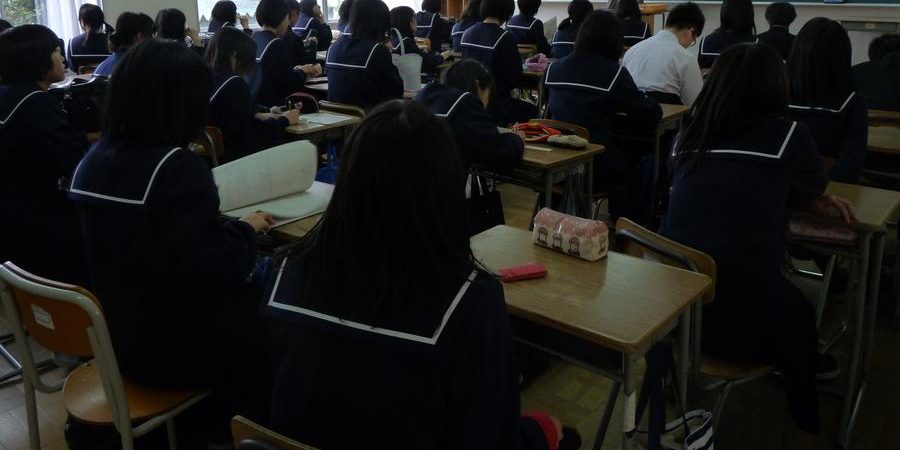by Jeanne Beck
The Japan Exchange and Teaching (JET) Program is an international teaching program run by the Japanese government. Through JETs, individuals can work as Assistant Language Teachers (ALTs) at Japanese K-12 school districts. Since 1987, more than 70,000 JET Program participants from 75 countries have participated in JET, either as ALTs, Coordinators of International Relations (CIRs), or Sports Exchange Advisors (SEAs). It is a competitive program but worth considering if you are an ESOL teacher looking to internationalize your teaching experience.
As a JET alumnus, when I work with JET hopefuls we tend to focus on these areas of the application:
Teaching or tutoring experience
The JET Program application has a section for work experience (12), classroom teaching or student teaching experience (Q13a), and other teaching experience (Q13b.) For applicants who lack formal teaching experience, I recommend tutoring, camp counseling, coaching, giving lessons, working at a daycare, etc. If applicants do not have these experiences I recommend they volunteer to show they are interested in and skilled at working with children and/or English language learners.
Connecting JET to your future profession
JET is very interested in who you are now, where you want to be professionally in the future, and how JET will act as a bridge. (Q14) JET does not require a specific bachelor’s degree – anyone can link their goals to JET with enough forethought. JET wants active alumni in all fields around the world continuing their relationship with Japan after their tenure, so don’t neglect this part of the application.
Study of Japanese
This section (Q15) sounds intimidating if you have never studied Japanese language, history, or culture, but keep in mind you can include self-study or informal studies, so long as it’s clearly labeled as such.
International/intercultural experience
This section includes exchanges, homestays, trips, work/volunteer activities that have brought you into contact with different cultures (Q17). JET is first and foremost an exchange program, so list any relevant activities, specifying whether the experience was in your home country or abroad.
First language
If English is not your first language, don’t shy away from putting that as your answer (18a). JET values diversity; there are people from over 35 countries with a wide range of first languages teaching on the JET program. One note, however: if your passport does not match the country you are living in, this will cause some logistical issues as you will need to apply and interview at your country’s Japanese embassy at your own expense.
Extracurricular/volunteer activities/interests/hobbies/sports
JET wants candidates who will engage with their students outside of classes, and with the community outside of school. List two to three personal hobbies, etc. in this section (19b) that you could see yourself doing in Japan. These don’t have to be “Japanesey” activities – anything from painting to basketball are great hobbies for connecting with others.
Living Area Classification
JET allows you to state your living preference (25a): urban, rural, island, and no preference. This is a matter of taste, just keep in mind that JET sees itself as a grassroots program – there are more rural positions available than urban and JET can’t always grant everyone’s requests.
Placement Request
JET allows you to request a block, prefecture, and even a city in which to work (25b). While leaving this section blank is an option, I tell candidates to do a bit of research and see what area would suit them best – if you like mountain hiking, then find out which prefectures are home to the Japanese Alps. If you like colder climates, find out where the “Snow Country” is. (The only place I don’t recommend requesting are the major cities because it may make you appear as though you’re not interested in local exchange activities). For intercultural exchange purposes, if your city or state has a Japanese sister city/state, JET is a great opportunity to strengthen those bonds, potentially giving you the opportunity to send your Japanese students overseas, and welcome people from your state/city to Japan. On a similar note, if you want to aid in earthquake/tsunami recovery efforts or live near family, this is where you would mention that (25c).
For more information on the JET Program visit the website and for local JET alumni connections visit the Heartland JET Alumni Association website.
Jeanne Beck is a doctoral student at Iowa State University’s Applied Linguistics and Technology program and graduate assistant for Speech Communication courses. She holds an Educational Specialist degree (Ed.S.) in Education Administration from William Woods University, and an M.Ed in TESOL Education, a BS in Middle School Education, and a BA in International Studies from the University of Missouri. She has taught undergraduate, graduate, and teacher training courses at Hankuk University of Foreign Studies in Seoul, South Korea; high school English on the Japan Exchange and Teaching (JET) Program in Nagano, Japan; and ESL, ELA, and technology classes in rural K-12 Missouri public schools. Her interests include CALL, technology training for teachers, project-based language learning, EL testing, EL policy, and rural EL needs. She has presented at TESOL, MIDTESOL, JALTCALL, served as an ed tech co-chair for MIDTESOL from 2018-2019. She co-authored an English textbook in South Korea and has written for the MIDTESOL website and Language Magazine.








